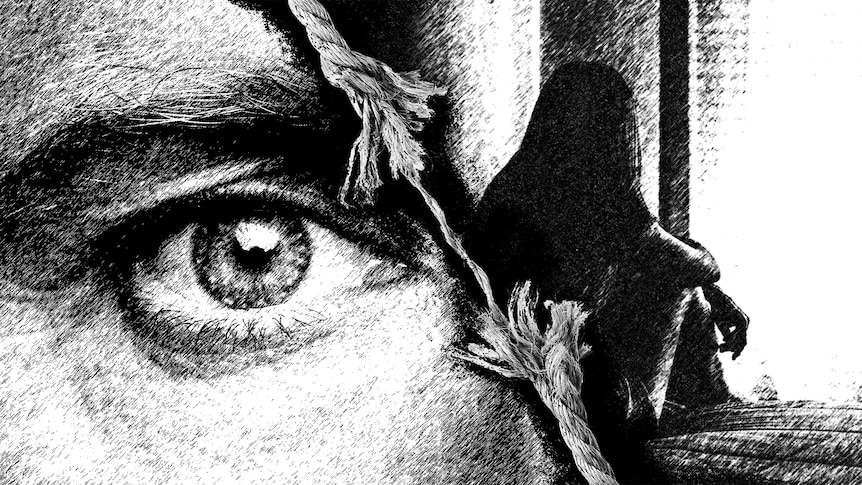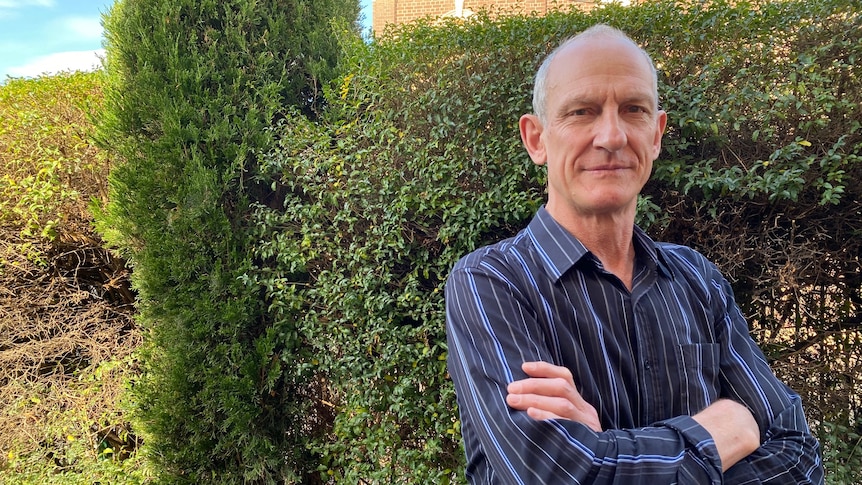A Queensland mother has described the “soul-destroying” ordeal of her teenage daughter being sexually abused by paedophiles and becoming addicted to ice while she was under the care of the Department of Child Safety, saying every day was “just waiting for her to die “.
Key points:
- Helena made the heartbreaking decision to relinquish care of her 13-year-old daughter after she became violent
- She said her daughter had made a number of disclosures to her and her carers about what has transpired during her time in out-of-home care, including drug use and sexual abuse
- Helena said at eight separate meetings, she begged the Department of Child Safety to transfer her daughter to another location, but was “shut out”
Warning: This story contains details some readers may find distressing.
Three years ago, Helena* was in fear of her life and felt she had no choice but to contact the department.
Her 13-year-old daughter Xanthe* was becoming increasingly violent, hitting her, smashing holes in walls, and ripping doors off their hinges.
“She threw something at me and it split my leg open,” Helena said.
“I realized one of us was going to die.
“I was scared she was going to kill me. Not on purpose, she’s not vindictive or anything like that, it was more that she was so out of control that I was scared she was going to kill me by accident and that she was going to have to live with that.
“That was my biggest fear.”
Helena desperately sought counseling and mental health support for her daughter, but with a limited number of professionals in the regional part of Queensland where she lives, it was around five months before she could get an appointment.
Her daughter was later diagnosed with conduct disorder with traits of borderline personality disorder.
But by this time, Helena had already made the heartbreaking decision to relinquish care.
But worse was to come.
Men ‘injected her with meth’
Helena said Xanthe has made a number of disclosures to her and her carers about what has transpired during her time in out-of-home care.
She said she learned that a youth worker dropped her daughter at a 16-year-old boy’s house for a “sleepover” four days after she went into care.
She said her daughter was allowed to do whatever she wanted, including being driven by youth workers to buy marijuana every Friday, “then they would come back to resi (residential care) and smoke that until it was gone.”
Helena said her daughter was later moved to another care placement against her wishes and preyed upon for sex by some older men in the area with a criminal history.
“They injected her with meth (methamphetamines) in the neck and she has been addicted to it since,” she said.
“There were people taking videos of her… while she was flipping out.”
Helena made numerous complaints to the department and asked for her daughter to be moved.
“When her drug addiction started, the department refused to accept that it was happening,” she said.
“They believed [she] was making it up.”
She said her daughter would constantly go missing — “she was with the paedophiles.”
But she said the police could not charge anyone unless her daughter was prepared to make a statement.
“Xanthe constantly stated she didn’t feel safe to press charges until she was moved away from the area.”
Mother constantly feared the worst
Helena said at the age of 14, her daughter was used for sex by a man in his 40s who also had a criminal history.
“That’s when she started getting really sick,” she said.
At one point, she said, her daughter turned up at her home covered in bruises after going missing for days.
“I heard my baby out the front yard just crying, ‘Mum, Mum, Mum, Mum’.
“She flipped out here. I watched her be held down by two policemen in the front yard.”
Xanthe stayed with her mother for several weeks but eventually had to be transferred to a different residential care home to comply with her care order.
“We could have been starting to reunify and bringing her back home, but because of the legislation, we had to send her back to resi.”
Helena said after that “everything got really, really bad.”
“We all knew that she was with the paedophile but we didn’t know exactly where because he was moving her from one place to another.”
She said she constantly feared the worst.
“She was missing all the time, she was basically going on the missing persons (list) every second day.”
‘Shut out’ by department
Helena said at eight separate meetings, she begged the department to transfer her daughter to another location.
“I discovered [later] the department hadn’t even put her on the list for a transfer.”
She said a safety plan was put in place for her daughter but she later discovered that a case worker “was contacting the paedophile to check if [my daughter] was ok … and transporting Xanthe to the paedophile’s address.”
Helena said she was “shut out” by the department.
“I made too many complaints about the neglect and poor conduct of care providers and youth workers.
“The callous disregard for my daughter’s well-being has been frightening to witness.”
She said it was only after the paedophile went to prison and her daughter was moved to a bigger city that life started to improve.
“She’s doing really well,” she said.
“She’s been engaging with normal friendships with children of her own age … and preparing to look for work.
“She says she feels free… [she says] ‘Now I can heal, mum’.”
‘I want my daughter to know this is not OK’
Helena said while her daughter was still in care, she had spent time at a drug rehabilitation center and is hoping they may be able to reunite in the future.
For now, she has decided to speak out.
“I want my daughter to know that this is not OK,” Helena said.
“I want her to know what happened to her is not right.
“She thinks because it’s happening to her that this is what she deserves. She doesn’t. No child deserves this.
“My daughter’s story reveals the sad reality of the current state of the system.”
Helena has shared her story as part of an ABC investigation into child protection.
Seven hundred people came forward with stories of rape, abuse, neglect and racism within child protection.
“I want the department to realize that they are hurting these kids, they’re not helping them, and if they don’t start collaborating with the parents, the kids and the future generations are just going to go through much of the same, said Helen.
She said while some youth workers were “really good people”, she felt the department failed her.
“They’re more focused on their annual reports than their current outcomes,” she said.
She believes if she had been able to access timely mental health support for her daughter, things might have turned out differently.
“It shouldn’t have happened, she needed help, she needed help to regulate her behaviour.”
Staff work to make sure ‘our most vulnerable children are safe’
Helena said because her child was in care, as a mother she was “perceived as the bad person straight away”.
“I am not the only mum like it, there are hundreds of us,” she said.
“At least my daughter had me there advocating for her rights. Imagine what’s happening to the children in care that have no-one.”
A spokesperson for the Department of Children in Queensland said the Child Protection Act prevented the department from disclosing whether an individual or family was known or not known to the department.
“However, whenever any criminal activity is disclosed to the department, staff work with the child and family to report this to the police and support the child,” the spokesperson said.
“Sexual offending against children is an abhorrent crime.
“No-one wants to see children harmed or suffering, and child safety staff work every single day to ensure our most vulnerable children are safe.
“Many children who are placed in residential care have very complex needs and have often experienced deep trauma.
“Staff work hard to ensure they are connected to the right services to get them the help they need, including specialist services for substance misuse.”
As part of the department’s policies and procedures for residential care providers, “no illegal substances are to be used within homes.”
“Staff also work with parents if they wish to make a complaint through the department’s complaints processes,” the spokesperson said.
System ‘broken’: Children’s Commissioner
Attorney-General Mark Dreyfus held a meeting with National Children’s Commissioner Anne Hollands following the “horrific” cases the ABC investigation uncovered.
Ms Hollands described the system as “broken”.
Principal Commissioner for Queensland Family and Child Commission Luke Twyford said he could not comment on individual cases, but called for a greater national focus on early intervention.
“Child protection workers respond to a crisis, an emergency much like an ambulance or a police officer responds to a report,” he said.
“Really, what we want to focus on is how do we prevent the urgency or the crisis from ever occurring? That means we need services focusing on the underlying causes that are making children unsafe.
“Improving access to education and employment, improving housing, improving the cost of living for families living in poverty… looking at our domestic violence responses and other forms of harm that are out there in families.”
Mr Twyford said he would welcome a further meeting with the federal Attorney-General involving children’s commissioners from across the country to discuss the issue.
*Not their real names.
.

